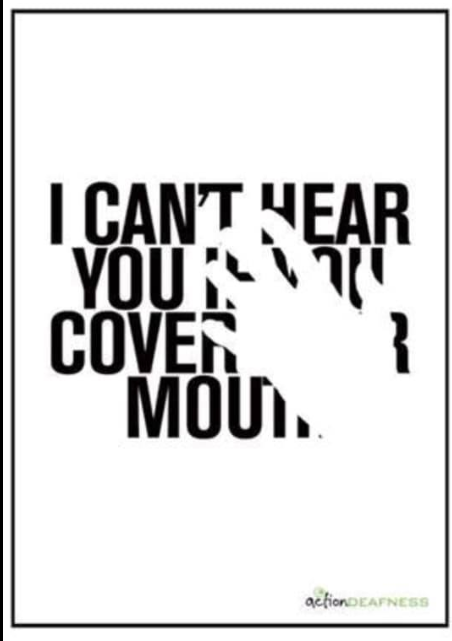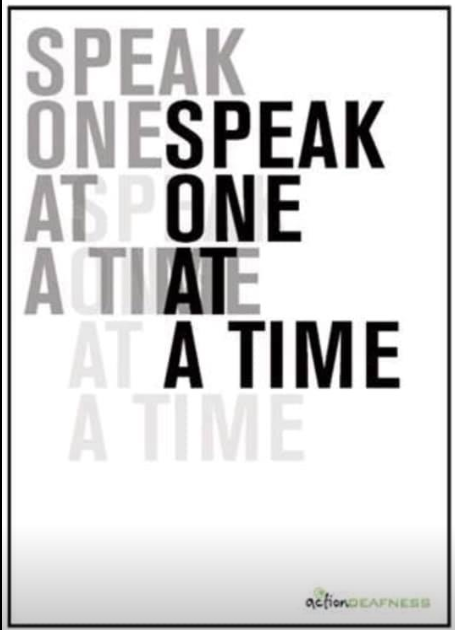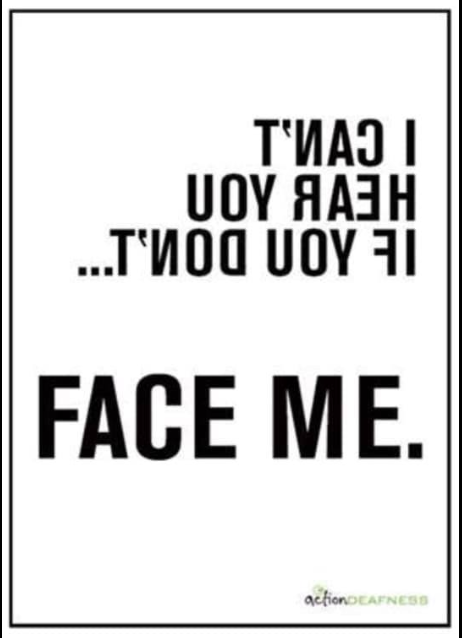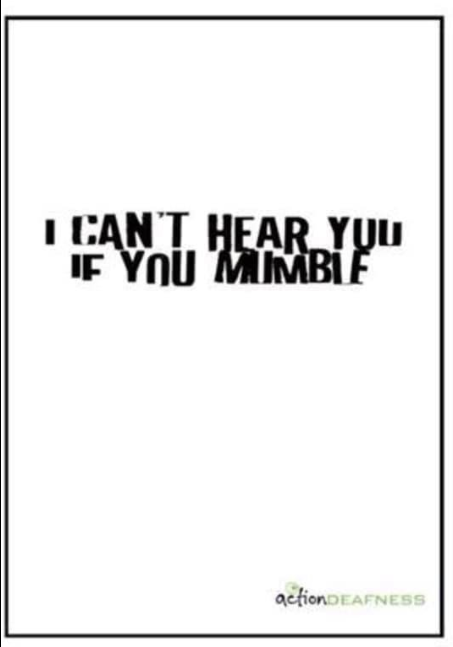Tidbits on accommodating with a deaf person
- Claire
- May 25, 2020
- 6 min read
Hi readers,
Hope that quarantine/ CCB (closed circuit breaker) measures have been great for you so far! I've been really caught up with work, hence I'm really sorry about this late post!! Today, I'm just going to share two misconceptions that people often have when interacting with deaf people. I am also sharing some adjustments that anyone can make for their fellow deaf friends. It is perfectly okay if you don't remember all of the tips, but if you do, it will definitely make a difference to your friend and I'm very sure he/she will appreciate it :)
So let's first jump into two main misconceptions that people often have:
Misconception 1: Cochlear implants and hearing aids are a cure.
I wish this is true, but it is not. CI and HA can be a solution to hearing loss, but not a CURE. You still do not hear perfectly like a normal hearing person. I've heard that CI helps to pick up around 70% - 75% of the words said, while maybe a normal hearing person picks up like 85% - 90% words? I'm not very sure how accurate this analogy is, but we do pick up fewer words because of various factors that impacts us more i.e. noisy environment, etc. For me, I would do my best to listen, but I take time to digest and already knowing the context really helps me get the words easily.
Misconception 2: Are you from Malaysia/ Vietnam/ Taiwan/ Australia/ Japan/ Indonesia/ (basically, just name any country you can think of)?
It is funny that the first question I usually get asked is this, and apparently I'm not alone. Although I don't really notice it, I apparently do have an accent that is slightly different from others. This can be attributed to the intensive speech therapies that I received from a Caucasian, where I might have picked up more of his accent while learning to talk and recognise words. Another reason could be that this is the "Deaf accent", which is usually more noticeable in deaf people who implanted at a later part of their lives.
On another note, I enjoy this question when it pops up, because it is intriguing to see them try to guess "where I come from".
If you do have any friends/ relatives/ loved ones who are deaf, I thought it would be great to give some tips on how you can help them create a better social setting :-) These are just my personal opinions, so it also really depends on the deaf person you know, and how he/she prefers the situation to be dealt with.
#1: Take note of where is the deaf person's predominant ear, and try to situate yourself next to him; if not, face him: for me, I prefer to hear directly from my predominant side, as I'm more trained to do that. For another deaf person who has just implanted, it is extremely helpful if you position yourself to face him directly so that he can read your lips. I understand that many of us do not know sign language, so the best tip I can give is to be patient and let him read your lips.
Let's say, you are in an environment which isn't so suitable to talk to each other i.e. clubs. You are practically shouting into his predominant ears but he still doesn't get you. A simple solution would be to use your phone to type out what you are trying to say. It is mentally draining for a deafie to concentrate on your words, and believe me when I say that it's not just you getting exasperated when the deafie can't understand what you say. The deafie himself also gets exasperated because he CAN'T get you. So, let's save the drama, and just use your digital tools to help yourself and your friend :)
#2: Repeat and rephrase if needed: sometimes I would hear words that are similar to each other and would get confused (my brain is like in slow motion at times). I find it more helpful when my friends would repeat, rephrase and/or repeat the context again. This also really depends on how well you know the deaf person; perhaps the deaf person doesn't need you to rephrase the word but he just needed you to repeat louder. I guess it's also about reading the body language to understand what he needs the most.
#3: Do not shout; just say slower, louder and clearer if needed: some people love to shout at the deaf, which makes me feel a little sad. Shouting is not really the best solution; in fact it makes the deaf person feel burdened when he still does not get you. He would avoid interacting with you all together, which isn't really good right?
Just understand that sometimes the deaf person just needs more time to connect the dots. I have this theory that since I know how the world feels like when there is no sound, my brain has this capability to "switch off" even when I'm hearing. So it's means that I'm hearing you, but I'm not registering what you are saying. It is quite subconsciously done that sometimes I don't notice it until I snap to reality and I would be like "huh what did you just say?". Maybe it is just a way for my brain to filter out the noise and concentrate only on those that are important, since it is draining to fill in the blanks.
#3: Consider a quiet place as much as possible: when going to a restaurant or a place, it can be a little difficult for me to hear the other person. I recall that there was a cafe that my friend and I visited recently, where it was pretty noisy and packed. We were facing each other, but even my friend couldn't catch some words, let alone me. By the time we left the cafe, my throat was sore because we were practically shouting at each other. Needless to say, that was the last time I ever went to that particular cafe. Also avoid echoey places as it tends to be very distracting for the deaf person.
#4: Group settings aren't the best: I enjoy group outings, but I just cannot cope with huge group meetings i.e. more than five people, where people just throw in words here and there. I follow conversations, but if there's many people talking at the same time, I often find myself having no idea what the conversation is about. I sometimes just engage in one-to-one conversation with a friend in the group instead, which is more meaningful and we get to establish more rapport between each other. It is best to go in small groups, which is easier for a deafie to follow conversations.
#5: Get his attention: calling him from far isn't very helpful, because as previously mentioned in the earlier post, we simply cannot tell where the direction of sound is. Simply walk up to him, and tap him on the shoulder.
#6 Texting is always the preferred method: I am usually fine with phone calls as I use the headphones, but I have friends who cannot cope with phone calls. It is harder for the deafie to hear on the phone, perhaps due to a different frequency or because he cannot see your face to lipread. It becomes harder for him to understand your words so try to use text messages whenever possible.
Dealing with someone deaf is really just the same as how you would deal with someone of a different culture. Be respectful, patient and understanding of the d/Deaf culture. I believe that if you remember a few of the above tips, it really will go a long way in building rapport between you and him/her.
Always remember that the deaf person is just like any other person, so do not treat him/her special or any different from others because some really dislike it. Our hearing loss does not define us, but is simply part of who we are. We can't change it, but we still definitely can accomplish the same tasks like a normal hearing person :-)
On a side note, I came across some imagery posters on a deaf support group, which I personally feel are super amazing! They convey exactly how it feels like for us in these scenarios; so I really hope to share with you guys here:
I hope these tidbits will help you visualise some of the challenges the deafie faces, and remind you to treat them with patience, respect and kindness. Take the time to know the underlying personality rather than getting exasperated of repeating yourself.
Hope that these will be helpful when you interact with a deaf person!
xoxo,
Claire











Comments